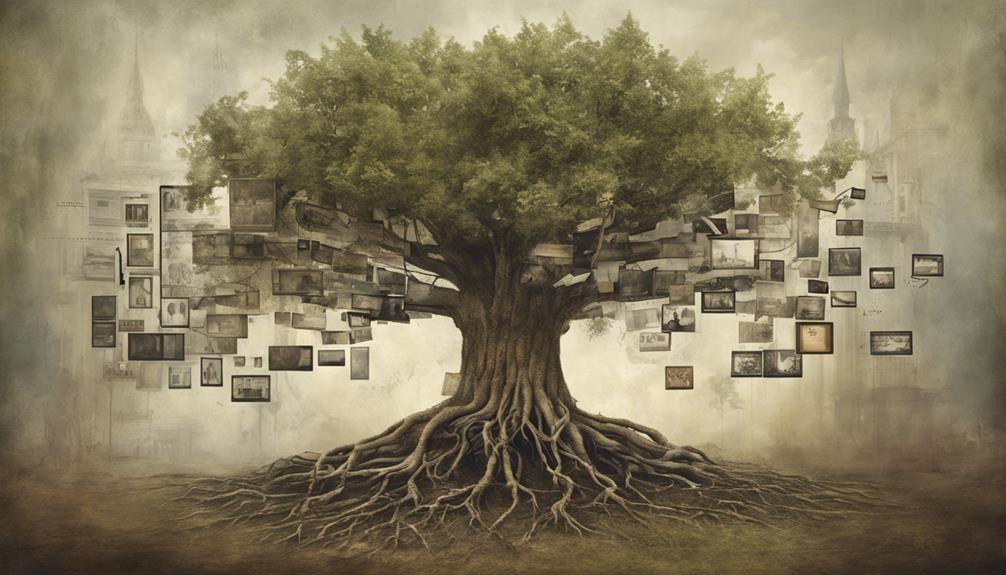The intricate interplay between past experiences and current realities is a subject of profound significance in understanding human behavior and societal dynamics. Delving into the ways in which historical events, generational traumas, and cultural norms shape our present circumstances can offer a compelling lens through which to examine the complexities of our existence. By critically examining the past's enduring impact on the present, we can unravel intricate patterns that influence our thoughts, actions, and relationships, prompting a deeper exploration into the profound influences that continue to shape our world today.
Key Takeaways
- Generational trauma shapes present coping mechanisms and behaviors.
- Learning from past mistakes enhances present decision-making.
- Cultural evolution is influenced by historical events and societal shifts.
- Legacy influences impact identity, relationships, and societal interactions.
Historical Events Impacting Current Society

The influence of historical events on current society is profound and undeniable, shaping the fabric of modern social, political, and economic landscapes. Past experiences such as World War II, the Civil Rights Movement, the Industrial Revolution, the French Revolution, and the abolition of slavery have left a lasting impact on present-day realities.
World War II's aftermath led to the establishment of the United Nations, significantly influencing global diplomacy, peacekeeping efforts, and international relations. The Civil Rights Movement of the 1960s catalyzed legislative changes that continue to shape contemporary views on equality and social justice. The Industrial Revolution revolutionized economies worldwide, setting the stage for modern manufacturing processes and technological advancements that define our current industrial landscape. The French Revolution of 1789 sparked discussions on democracy and human rights, laying the groundwork for contemporary political ideologies and governance structures. The abolition of slavery in the 19th century has had enduring effects on race relations and social justice movements, shaping ongoing dialogues on equality and diversity in today's society.
Generational Trauma and Present Realities
Amidst the intricate web of intergenerational influences on present-day realities, generational trauma emerges as a critical lens through which to understand the complexities of individual and collective experiences. Generational trauma refers to the transmission of psychological and emotional pain from one generation to the next, shaping how individuals navigate the present. Traumatic experiences from the past can significantly impact how individuals cope with stress and adversity in their current lives. Studies have shown that the lingering effects of generational trauma can lead to increased mental health challenges and decreased resilience in affected individuals. These effects can manifest in various ways, influencing behaviors, beliefs, and interpersonal relationships in the present. Recognizing and addressing generational trauma is crucial for breaking the cycle of suffering and promoting healing and resilience within both individuals and communities.
- Generational trauma shapes coping mechanisms in the present.
- Studies highlight increased mental health challenges due to generational trauma.
- Manifestation of generational trauma in behaviors and relationships.
Lessons Learned From Past Mistakes
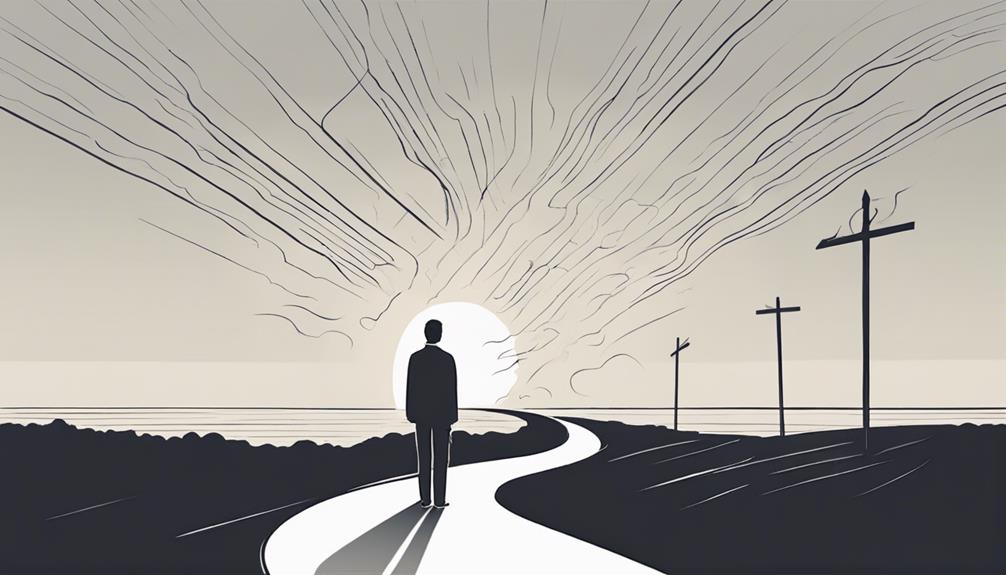
Reflecting on past mistakes provides a foundation for understanding the consequences of our actions. This reflection is crucial for improving our decision-making processes and shaping our future actions. By acknowledging and learning from past errors, individuals can cultivate resilience and enhance their problem-solving skills.
Past Mistakes as Guidance
Drawing upon past mistakes as a source of valuable guidance, individuals can effectively navigate present decisions with enhanced foresight and wisdom. Reflecting on past errors not only helps in learning from past mistakes but also provides a platform for personal growth and development. Acknowledging past missteps allows individuals to course-correct and strive for improved outcomes in the present. Through the lens of past mistakes, individuals can make more informed choices, avoid repeating similar errors, and continuously evolve towards better decision-making. Learning from the past serves as a foundation for building a more resilient and insightful approach to current challenges and opportunities.
Impact on Decision-Making
Building upon the foundation of past mistakes, individuals can leverage invaluable insights to shape their decision-making processes with enhanced wisdom and foresight. The influence of past errors on present decision-making is significant, as it allows individuals to avoid repeating similar missteps. Behavioral Decision research emphasizes that reflecting on past failures enhances decision-making skills by providing a framework for evaluating potential outcomes. Understanding the consequences of past choices influences current decision-making strategies, leading to more informed and rational decisions. By applying lessons learned from past experiences, individuals can navigate present challenges with greater clarity and effectiveness. Ultimately, the impact of past mistakes on decision-making highlights the importance of learning from history to make better choices in the present.
Shaping Future Actions
Utilizing the insights gleaned from past mistakes is instrumental in shaping future actions and refining decision-making processes. Learning from past errors cultivates resilience and adaptability in facing new challenges, ultimately fostering personal growth. Reflecting on past experiences helps individuals avoid repeating the same errors, enhancing problem-solving skills. Acknowledging past mistakes promotes personal development by fostering self-awareness and accountability. Applying insights gained from past failures enables individuals to make more informed and effective choices in the present and future. This iterative process of learning from past mistakes not only influences one's decision-making but also contributes significantly to individual growth and development.
Evolution of Cultural Norms Over Time
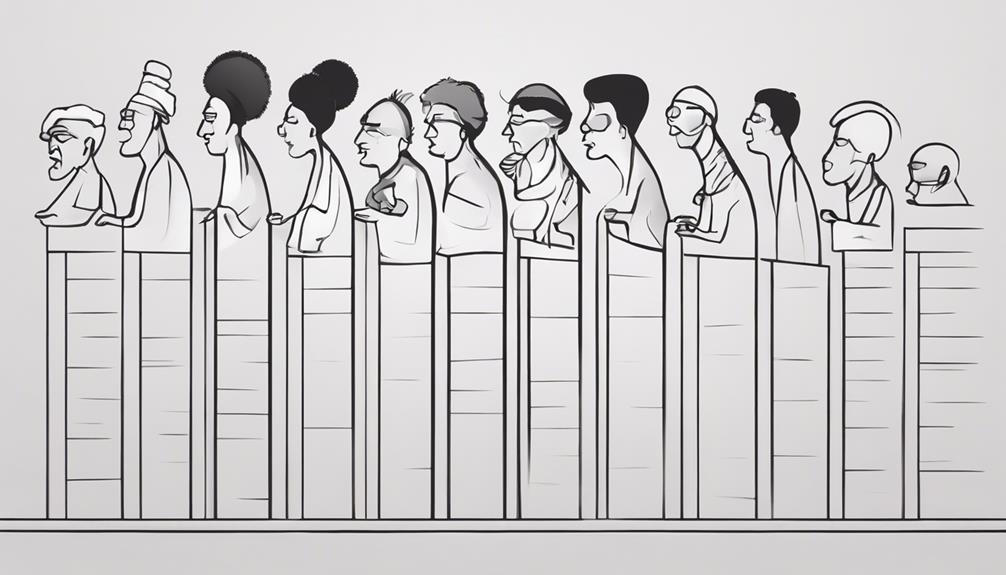
The evolution of cultural norms over time is a complex and multifaceted process influenced by societal shifts, historical events, and interactions with diverse cultures. Cultural norms are not static; they continuously adapt in response to changing circumstances. The past affects the evolution of cultural norms by laying the foundation upon which present norms are built. As societies progress, technological advancements, globalization, and increased interconnectivity through communication tools contribute significantly to shaping modern cultural norms. This evolution is not isolated but rather interconnected with various factors that drive change.
Migration, trade, and intercultural interactions are pivotal in the evolution of cultural norms as they facilitate the exchange and blending of ideas and practices across different regions. The study of cultural anthropology provides valuable insights into how cultural norms originate, develop, and transform over time. Understanding the evolution of cultural norms is essential for comprehending the complexities of societies and the forces that drive them forward.
The Resilience of Past Influences
Through an intricate interplay of past experiences and adaptive responses, individuals exhibit a remarkable capacity for resilience in facing present challenges. This resilience stems from various factors influenced by the past, shaping how individuals respond to and overcome adversities.
- Past Traumas and Coping Mechanisms: Past traumas can instill resilience by prompting individuals to develop effective coping mechanisms, such as emotional regulation and problem-solving skills, which can be invaluable in navigating current challenges.
- Positive Past Experiences: Positive past experiences can serve as a source of strength and resilience, providing individuals with a foundation of confidence and optimism to confront present obstacles with a positive outlook towards the future.
- Personal Growth and Positive Future: Overcoming past adversities through resilience not only fosters personal growth but also cultivates a hopeful attitude towards the future. This positive mindset enables individuals to envision a brighter future, make proactive decisions, and strive for success despite the challenges they face.
Navigating Legacy and Inherited Beliefs
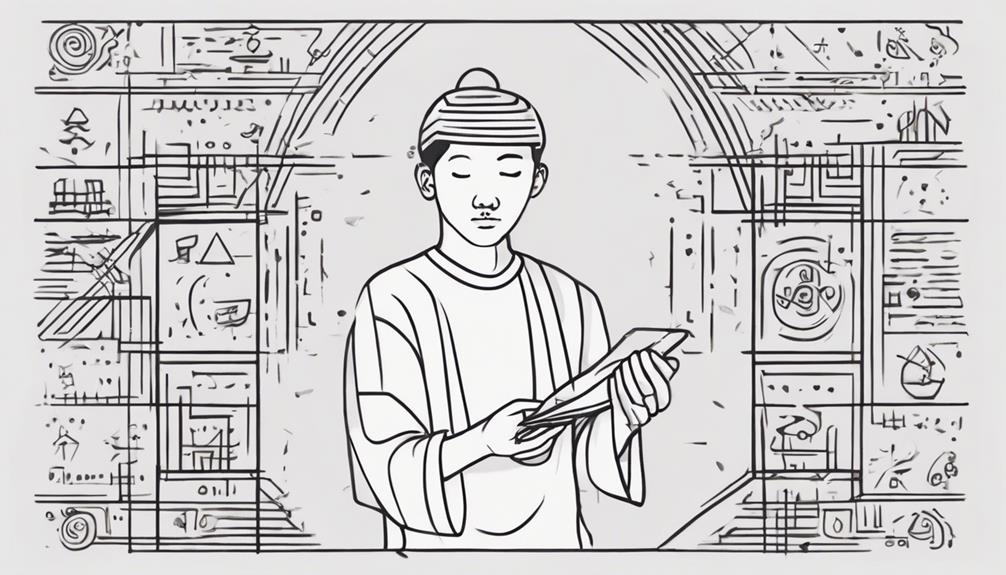
In navigating legacy and inherited beliefs, individuals must engage in introspective analysis to discern the impact of these deeply ingrained values on their present perspectives and actions. Legacy influences can shape personal growth significantly, as individuals often unconsciously adopt beliefs from their familial background, impacting their self-awareness and decision-making processes. Critical reflection is essential in navigating these influences, as it allows individuals to evaluate the relevance of inherited beliefs in their current context.
—
| Legacy Influences | Personal Growth |
|---|---|
| Shape identity | Foster self-awareness |
| Impact decision-making | Influence personal values |
| Affect relationships | Facilitate introspection |
| Influence societal interactions | Encourage personal development |
—
Unpacking Historical Injustices in Today's World
Examining the intricate web of historical injustices embedded in contemporary societal structures reveals profound implications for social equity and collective progress. The perceptions of time play a crucial role in how historical injustices are viewed in today's world. Some may argue that the past should be let go, emphasizing the importance of moving forward. However, letting go of the past without proper acknowledgment and reconciliation can hinder the healing process and perpetuate systemic inequalities.
- Acknowledging the historical injustices allows for a deeper understanding of their enduring impacts on present-day society.
- Addressing the root causes of systemic discrimination stemming from past injustices is essential for promoting social justice and equality.
- Implementing reparative measures, such as reparations or truth and reconciliation processes, can help in rectifying the ongoing effects of historical injustices on marginalized communities.
Unconscious Bias From Past Experiences
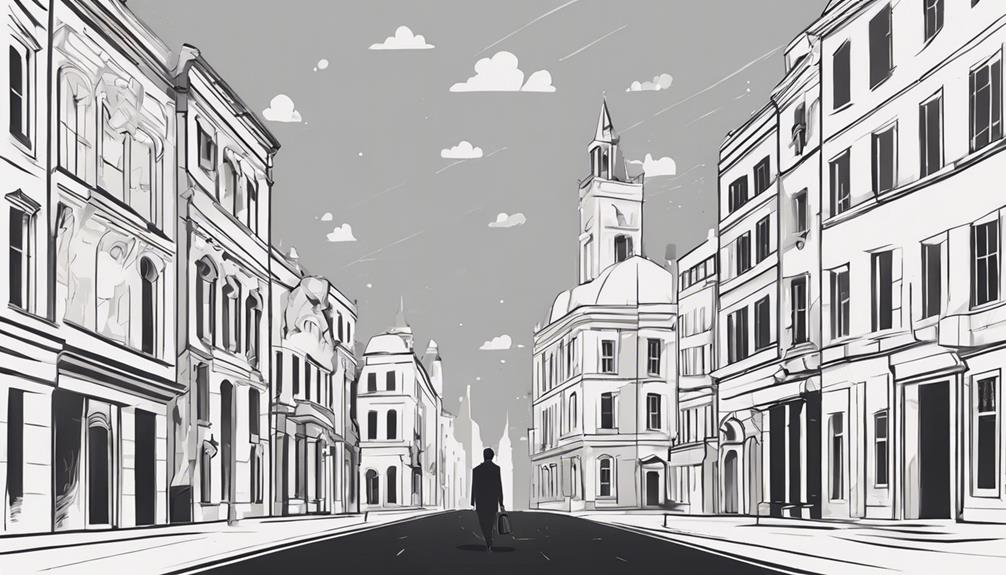
Unearthing the subtle yet powerful influence of unconscious bias from past experiences sheds light on the intricate mechanisms shaping individuals' attitudes and behaviors today. Past experiences serve as the foundation upon which individuals build their perceptions of the world, often leading to the development of unconscious biases. These biases, ingrained through repeated exposure to certain stimuli or events, create mental shortcuts that influence decision-making and interactions with others without conscious awareness.
Implicit biases derived from past interactions can significantly impact how individuals treat others in the present, potentially resulting in discriminatory actions based on learned associations. Recognizing and addressing these unconscious biases demand self-reflection and an understanding of the ways in which past experiences continue to influence present behavior.
Adapting Traditions to Modern Times
Adapting traditions to modern times requires a delicate balance between preserving the essence of cultural practices and integrating contemporary elements. This process involves modernizing cultural practices, navigating the fine line between tradition and change, and evolving family customs to suit the needs of present-day society. By understanding the significance of adapting traditions in a dynamic world, societies can ensure the continuity of their cultural heritage while embracing the opportunities that come with evolving practices.
Modernizing Cultural Practices
The evolution of traditional cultural practices in response to contemporary demands necessitates a delicate balance between heritage preservation and adaptation to modern societal shifts. Adapting traditional cultural practices to modern times involves preserving core values while adjusting to contemporary needs and trends. Modernizing cultural practices can help maintain cultural identity and relevance in a rapidly changing world. Technology and globalization have influenced the evolution of cultural traditions, leading to innovative adaptations. Balancing tradition with modernity requires a thoughtful approach to ensure continuity and sustainability of cultural heritage. Cultural revitalization efforts aim to bridge the gap between past traditions and present-day realities for future generations.
Balancing Tradition and Change
In the context of modernizing cultural practices, the harmonious integration of tradition with contemporary innovations plays a pivotal role in preserving cultural heritage while ensuring its continued relevance in today's rapidly evolving society. Adapting traditions to modern times involves recognizing the significance of the past and understanding how to translate it into the present. By embracing change while respecting tradition, a balance can be struck that fosters a sense of continuity and cultural evolution. Modernizing traditions not only keeps them alive but also makes them more meaningful for future generations. The integration of traditional practices with modern advancements creates a dynamic blend of the past and present, allowing for the continuation of cultural practices in a way that resonates with contemporary society.
Evolving Family Customs
Families undergoing transformations in cultural practices are actively integrating traditional customs with contemporary values to ensure the preservation of cultural heritage amidst societal shifts, technological progress, and globalization. This evolution in family customs is a reflection of the dynamic nature of society and the need to adapt to changing times while holding onto cultural roots. To illustrate this phenomenon:
- Modern family customs blend old traditions with new practices to cater to changing lifestyles and preferences.
- Younger generations play a significant role in reshaping family customs by incorporating modern elements into traditional rituals.
- Adapting family traditions ensures the continuity of cultural identity and fosters a sense of belonging across generations.
Revisiting Past Decisions for Present Clarity
By revisiting past decisions, individuals can gain invaluable insights into their thought processes and behaviors, facilitating a clearer understanding of their present circumstances and aiding in informed decision-making. Reflecting on past decisions allows individuals to learn from their mistakes and apply those lessons to current situations. Analyzing past decisions not only clarifies personal values, priorities, and goals in the current context but also helps individuals understand the patterns of behavior and thought processes influencing their present actions.
Learning from past mistakes is crucial for avoiding similar errors and improving decision-making skills when faced with present circumstances. Reexamining past decisions fosters self-awareness, growth, and the ability to make more effective choices in the present moment. By acknowledging past decisions, individuals can identify areas for improvement, make adjustments to their behaviors, and ultimately enhance their decision-making processes for a more successful present and future.
Frequently Asked Questions
How Does the Past Influence Our Present World?
The past deeply influences our present world through the preservation and transmission of cultural heritage, shaping societal norms and values. Historical events and traditions serve as the pillars upon which contemporary societal structures are built. Understanding the past provides insight into the origins of current practices and beliefs, guiding our decision-making processes. By studying the past, we gain a comprehensive understanding of the forces that continue to impact our present reality.
How Does the Past Affect the Present Example?
Family dynamics and cultural traditions are deeply rooted in historical events and societal norms. Understanding the impact of the past on the present is crucial in navigating these dynamics. For example, studies show that children raised in families with a history of trauma are more likely to experience mental health challenges later in life. Acknowledging this connection can help individuals break generational patterns and strive for healthier relationships and well-being.
How Has the Past Affected the Present?
Historical events have a profound generational impact, shaping societal norms, values, and perspectives. The past has affected the present by influencing cultural attitudes, political landscapes, and economic structures. Understanding how historical events continue to reverberate in the present can provide insights into current challenges and opportunities for growth. By examining the past's lasting effects, we can navigate complexities with a more informed and nuanced approach, fostering a deeper understanding of our world today.
What Is the Importance of the Past to the Present?
Understanding the importance of the past to the present involves acknowledging the historical context and cultural heritage that shape our current reality. By examining past events and traditions, we gain valuable insights into the foundations of our society and individual identities. This knowledge not only provides a sense of continuity and belonging but also serves as a compass for navigating contemporary challenges and fostering a deeper understanding of our place in the world.
Conclusion
In conclusion, the past undeniably shapes the present through various avenues such as historical events, generational trauma, and cultural norms. While some may argue that focusing on the past hinders progress, acknowledging and learning from past influences can lead to personal growth and societal improvement. By understanding the impact of past experiences on present realities, individuals and communities can work towards a more informed and enlightened future.
